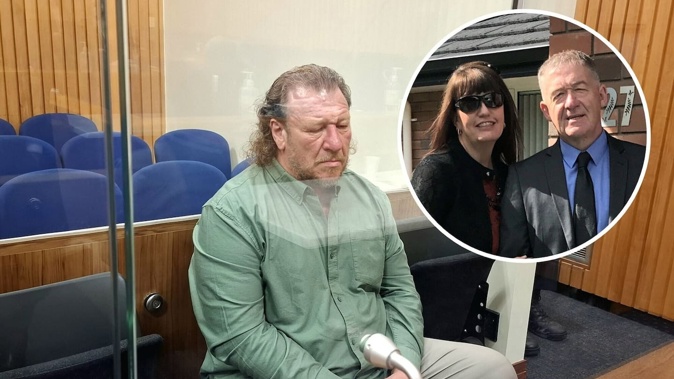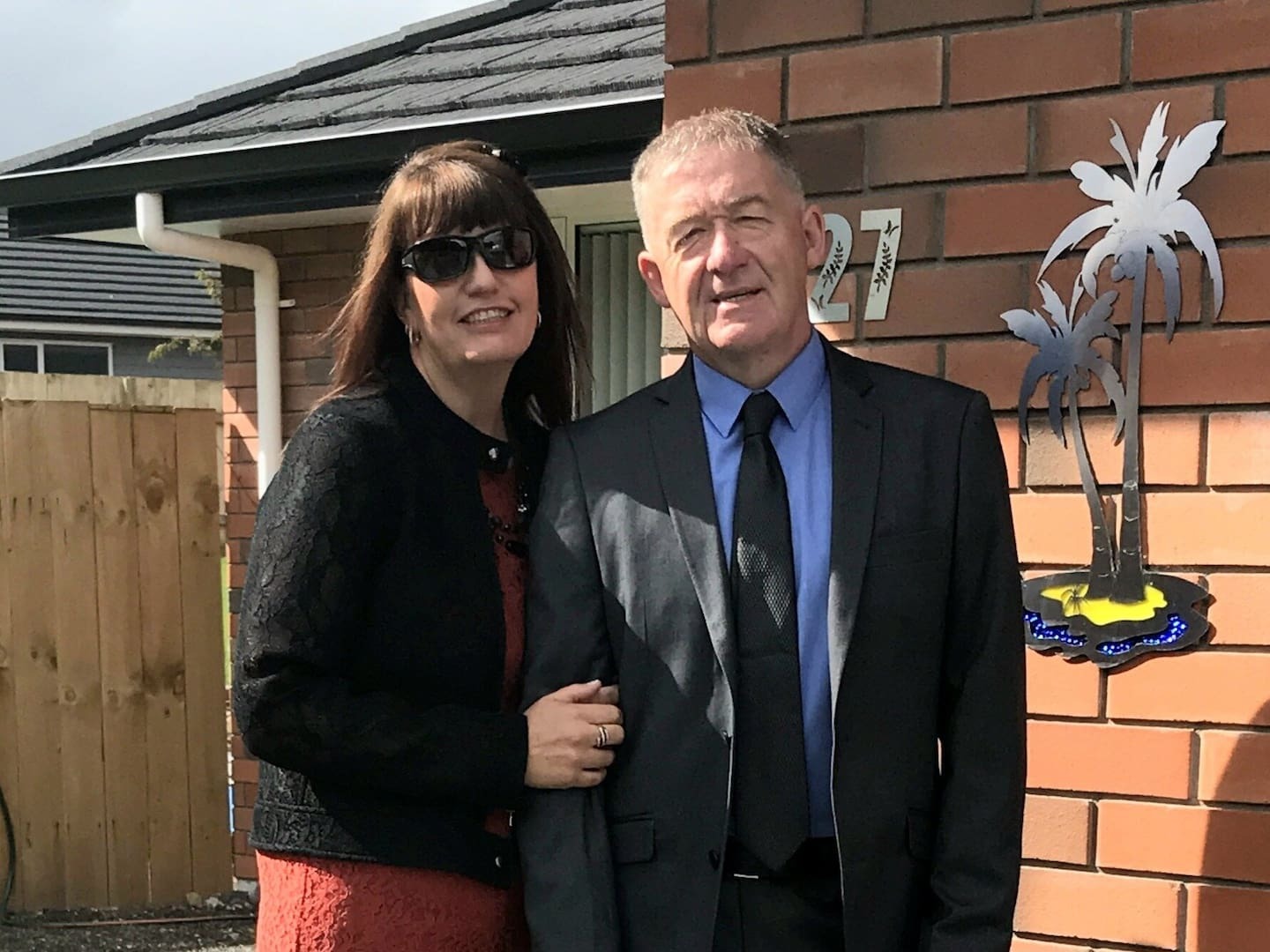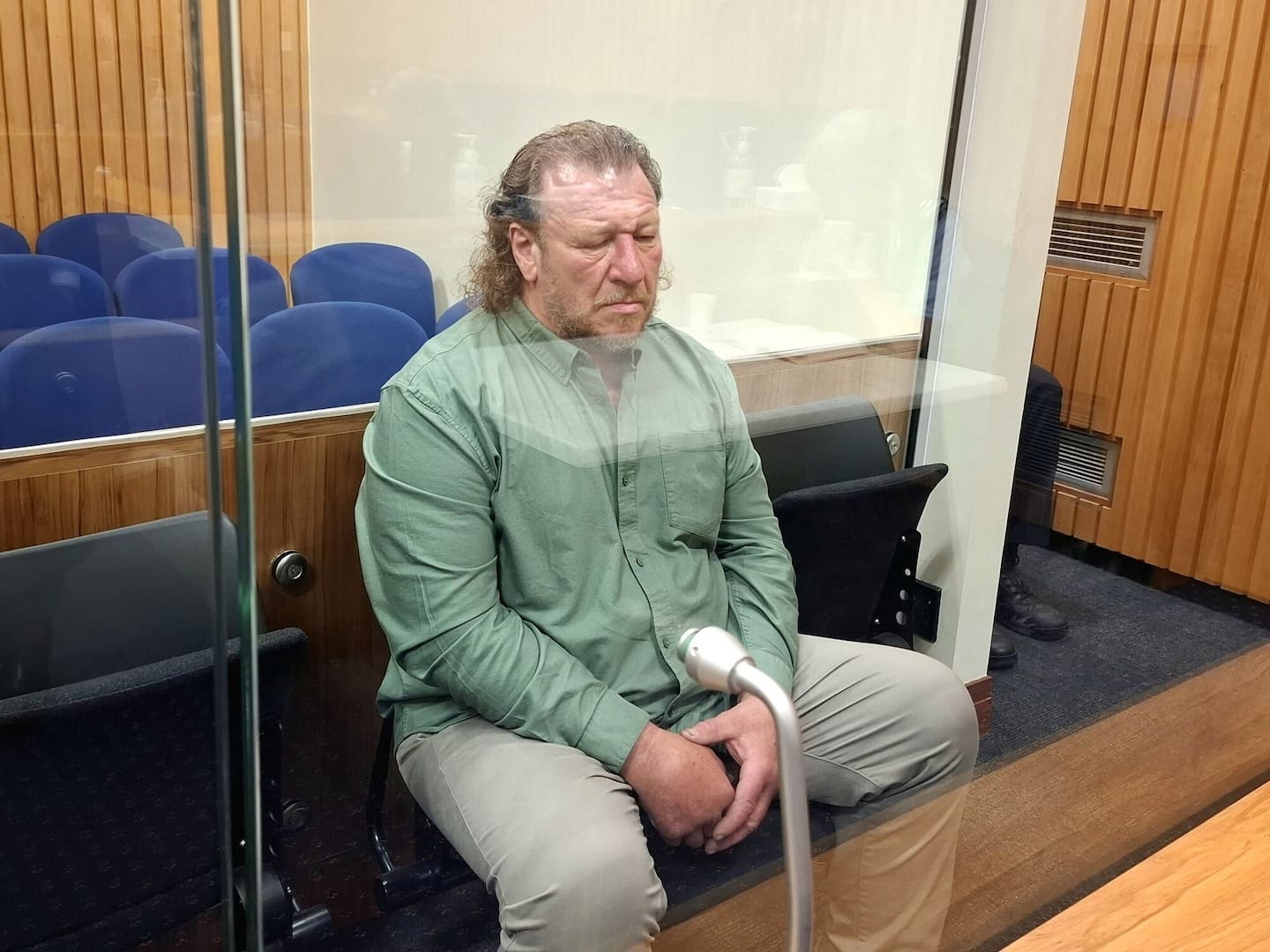
The rider of a Harley Davidson motorcycle who hit and killed two pedestrians had 70 driving infringements, as well as 11 previous convictions for bad driving.
Karen and Geoffrey Boucher were heading home on foot, after dinner at The Orchard, when they crossed State Highway 2 near Bethlehem on July 22, 2022.
Seconds later, they were struck by Mark Gregory Kimber, who was speeding through the intersection and didn’t see them in time.
His brake lights were seen to come on just before he collided with the Bouchers, sending Karen Boucher flying through the air and dragging Geoffrey Boucher under the bike.
They both died at the scene.

Karen and Geoffrey Boucher were crossing State Highway 2 in July 2022 when they were hit and killed by a motorcycle.
The central question at trial was whether Kimber’s speeding, cutting across lanes and failing to stop at the red light were so negligent that they constituted a “major departure” from the ordinary standard of care expected of a reasonable person riding a motorcycle.
At sentencing today, Justice Cheryl Gwyn detailed the 60-year-old’s driving history, which included previous convictions for careless driving, speeding, drink-driving, dangerous driving, failing to stop and driving while suspended.
These were considered relevant to his sentencing on two charges of manslaughter – the outcome of a more than three-week High Court jury trial in April this year.
The judge also noted Kimber has received two further speeding offences since the death of the Bouchers.
Justice Gwyn said Kimber had a lengthy criminal history on top of the driving matters, having appeared before the courts “every few years” since 1981.
His history included drugs, violence, dishonesty and weapons charges, and most related to “interpersonal disputes” within gang subculture.
Kimber is an “honorary and lifetime member” of the Filthy Few motorcycle gang, although material provided to the court said he has “largely stopped” his involvement since his 21-year-old daughter’s death in 2013.
Kimber has been imprisoned on six prior occasions, with his longest sentence being six and a half years’ imprisonment.

Mark Gregory Kimber, 60, was found guilty on two charges of manslaughter after a three-week High Court trial in Rotorua.
Justice Gwyn also detailed reports of Kimber’s upbringing, in which he “largely had to fend for himself”.
He was neglected by his parents, who drank heavily, and when he was 10 his mother took his three siblings, leaving Kimber with his father, who would leave him alone on a farm for “weeks at a time”.
Justice Gwyn agreed with defence lawyer Ron Mansfield, KC, that, to some extent, there was a “causative link” between Kimber’s Filthy Few involvement, his criminal history and non-compliance with authority that stemmed from a childhood marked by abuse, insecurity and poor parenting.
‘Tough exterior’ but ‘kind and compassionate’, says judge
However, since the fateful night when his actions led to the death of the Bouchers, the judge considered that Kimber had made “significant” rehabilitative efforts and demonstrated remorse.
Justice Gwyn said she was “greatly encouraged” by the letters of support she’d received about Kimber, who had become involved with a church, sought addictions services, and had received mentoring.
Kimber had also raised $10,000 to offer the family for emotional harm reparation.
However, the family did not want to accept that, nor did they want to hear Kimber read his letter of apology in court.
However, the judge took into account both of those shows of remorse, which she considered genuine.
“They indicate you have taken responsibility for the harm you caused and have tried to make amends for that,” Justice Gwyn said.
“One of the themes [of the letters of support]... is that although you have a tough exterior and are a man of few words, you are a kind and compassionate person and have a lot of potential to make a real and lasting difference.”
His continued journey on the “path” of rehabilitation would offer the best protection for the community, rather than a lengthy prison sentence.
A ‘lost dream’ for couple’s children
However, balanced against Kimber’s background, remorse and prospects of rehabilitation was the death of two people and the “profound and palpable” grief for the Boucher family.
Geoffrey and Karen Boucher’s family members didn’t read victim impact statements aloud in court, but the judge referred to their contents.
They “[painted] a picture” of a “hard-working and family-oriented couple” who were loved by their family.
The judge said each statement described the ways the couple’s death had affected the family member – in “small day-to-day ways that hit you when you least expect it”, but also in significant, practical and financial ways.
The Bouchers had been planning to build a home with their two adult children. With their death, that was now a “lost dream”.
The level of harm meant Kimber’s culpability was high and the offending serious.
Crown and defence in ‘parallel universes’
Crown prosecutor Ian Murray sought a starting point of eight years and six months, with few discounts, while Mansfield told the judge the Crown’s approach left him “feeling like we’re in parallel universes”.
He asked for a starting point of three years and six months, as well as more than 40% in discounts for personal factors.
The judge accepted Kimber’s excessive speed, failing to stop at the red light, and the death of the two pedestrians were factors she should consider when setting a starting point.
Murray reminded the judge that Kimber was doing 110km/h in a 50km/h zone in the lead-up to Bethlehem roundabout, just before the incident, and before that he’d been travelling an estimated 30km/h above the speed limit on the expressway.
He said his driving that night sat within “a pattern of highly dangerous driving over a lifetime”.
However, the judge did not agree with the Crown that there had been a “prolonged, persistent and deliberate course of very bad driving” that night.
She said that having viewed the CCTV footage at trial, she did not characterise his driving in that way.
“Apart, of course, from the excessive speed and running the red light,” she said.
The judge adopted a starting point of four years.
She imposed an uplift of one year for his previous driving history and gave a 25% discount for rehabilitation and remorse, and 10% for his background.
He received an end sentence of three years and six months’ imprisonment and will be disqualified from driving for three years once he’s released.
The judge declined the Crown’s bid for an order seizing the Harley Davidson and also declined to impose a minimum period of imprisonment.
HannahBartlett is a Tauranga-based Open Justice reporter at NZME. She previously covered court and local government for the Nelson Mail, and before that was a radio reporter at Newstalk ZB.
Take your Radio, Podcasts and Music with you









